Estrogen Reset Super Kit
- 8 formulas to support complete estrogen metabolism and elimination
- Can help with symptoms of Estrogen Dominance
- Added antioxidants for support
- Capsules, 60-day supply
- FREE SHIPPING - US Only
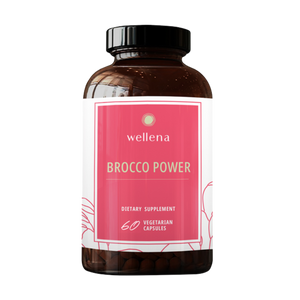
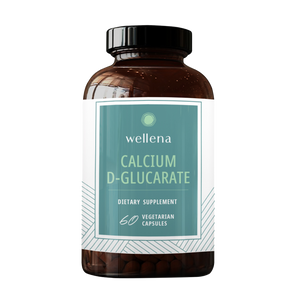
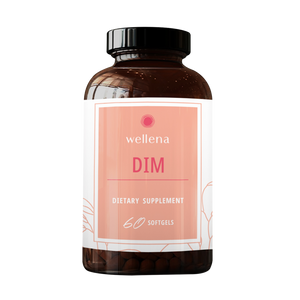
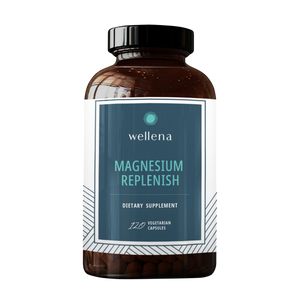
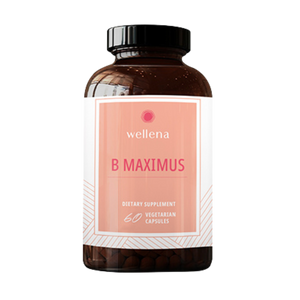
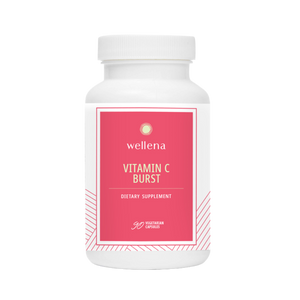
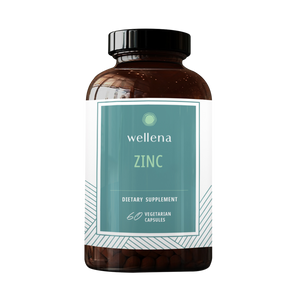
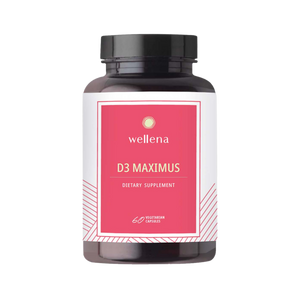
*symptoms may be due to low progesterone levels
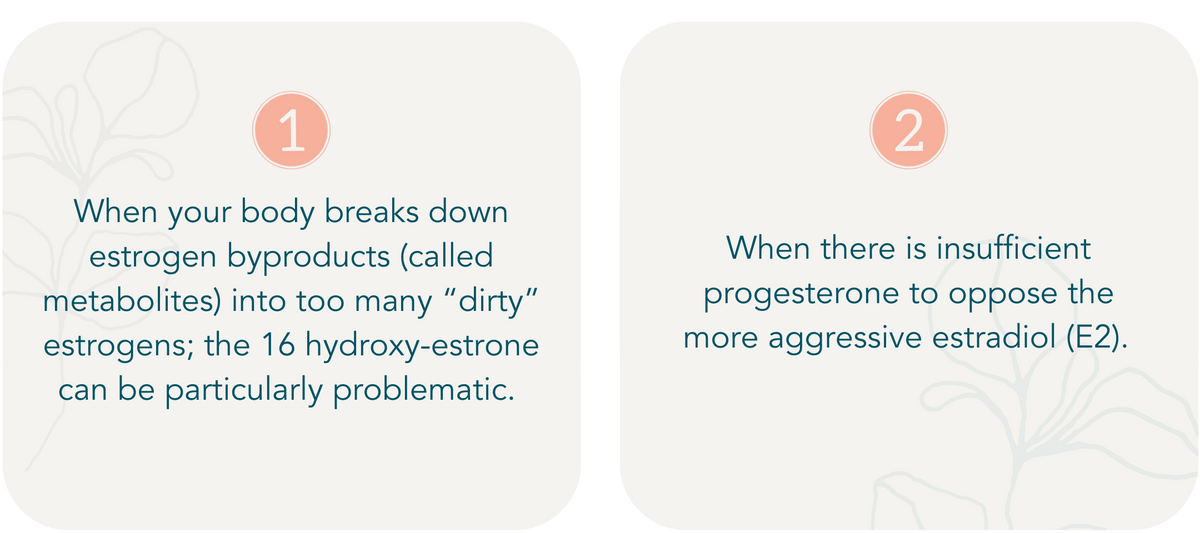
Complete Estrogen Detoxification is a process that occurs in your liver and has three important steps to fully metabolize and eliminate "dirty" estrogens and other toxins from the body.
The core supplements in the Estrogen Reset Super Kit correspond with the 3 steps.
Step 1: Brocco Power (sulforaphane)
Step 2: Calcium D-Glucarate
Step 3: DIM
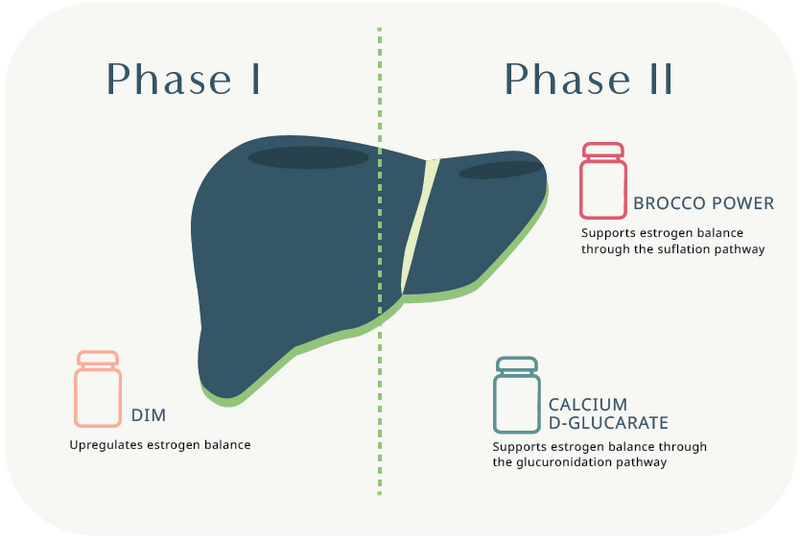
DIM has become the “estrogen buster” of the supplement world. While it can be an effective supplement for some, it doesn’t work as well alone.
In fact, many women say they felt worse after taking it.
It's most likely due to the fact that DIM upregulates Phase I liver detoxification, opening the floodgates of this phase but leaves the remaining parts of the liver unsupported and overwhelmed by this flooding.
To fully detox excess estrogens, the body also needs a well-supported Phase II liver detoxification.
You only feel your best when both Phase I and Phase II pathways are nutritionally supported and symptoms of Estrogen Dominance are reduced.
To fully understand the 3-Step Complete Estrogen Detoxification process, let’s use a clogged toilet analogy.
DIM will open up the first part of the detoxification process (being the toilet bowl) while Brocco Power (sulforaphane) and Calcium D-glucarate will open up the remaining detoxification (being the drain).
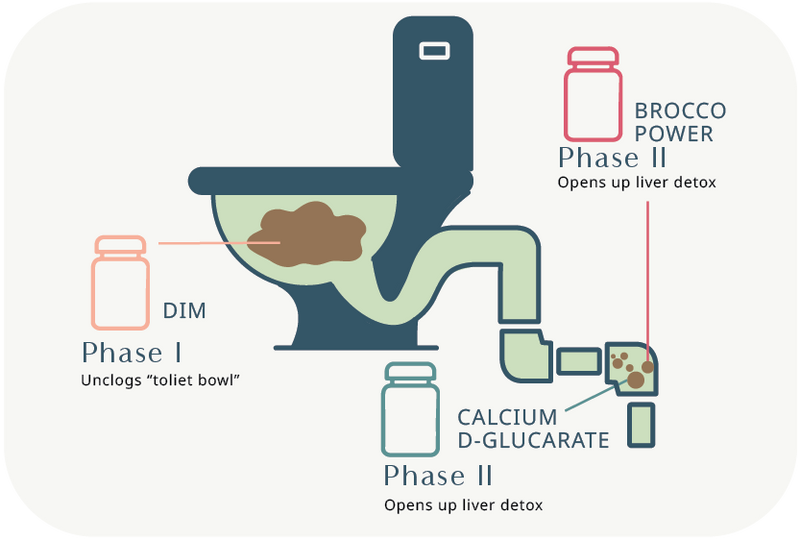
Overcoming Estrogen Dominance offers practical protocols, recipes and meal plans to help transition to an anti-inflammatory diet, while supporting digestive health and gentle liver detoxification, using food and herbs.
Written by Magdalena Wszelaki, who is a functional nutritionist and certified herbalist.
Rajoria S, Suriano R, Parmar PS, et al. 3,3'-diindolylmethane modulates estrogen metabolism in patients with thyroid proliferative disease: a pilot study.Thyroid. 2011;21(3):299-304. doi:10.1089/thy.2010.0245
Wang SQ, Cheng LS, Liu Y, Wang JY, Jiang W. Indole-3-Carbinol (I3C) and its Major Derivatives: Their Pharmacokinetics and Important Roles in Hepatic Protection. Curr Drug Metab. 2016;17(4):401-9. doi: 10.2174/1389200217666151210125105. PMID: 26651978.
Lord RS, Bongiovanni B, Bralley JA. Estrogen metabolism and the diet-cancer connection: rationale for assessing the ratio of urinary hydroxylated estrogen metabolites. Altern Med Rev. 2002 Apr;7(2):112-29. PMID: 11991791. Morales-Prieto, D. M., Herrmann, J., Osterwald, H., Kochhar, P. S., Schleussner, E., Markert, U. R., & Oettel, M. (2018). Comparison of dienogest effects upon 3,3'-diindolylmethane supplementation in models of endometriosis and clinical cases. Reproductive biology, 18(3), 252–258. https://doi.org/10.1016/j.repbio.2018.07.002
Thomson, C. A., Ho, E., & Strom, M. B. (2016). Chemopreventive properties of 3,3'-diindolylmethane in breast cancer: evidence from experimental and human studies.
Nutrition reviews,74 (7), 432–443. https://doi.org/10.1093/nutrit/nuw010 Yoshida K, Ushida Y, Ishijima T, et al. Broccoli sprout extract induces detoxification-related geneexpression and attenuates acute liver injury. World J Gastroenterol. 2015;21(35):10091–10103.doi:10.3748/wjg.v21.i35.10091. Retrieved from: https://www.ncbi.nlm.nih.gov/pmc/articles/PMC4572790
Castro, N. P. et al. Sulforaphane suppresses the growth of triple-negative breast cancer stem-like cells invitro and in vivo. Cancer Prev. Res. (Phila.)1 2,147–158 (2019). Retrieved from: https://www.ncbi.nlm.nih.gov/pubmed/30679159
Bahadoran, Z., Mirmiran, P., & Azizi, F. (2013). Potential efficacy of broccoli sprouts as a unique supplement for management of type 2 diabetes and its complications. Journal of medicinal food, 16(5), 375–382. https://doi.org/10.1089/jmf.2012.2559
Chartoumpekis, D. V., Ziros, P. G., Chen, J. G., Groopman, J. D., Kensler, T. W., & Sykiotis, G. P. (2019). Broccoli sprout beverage is safe for thyroid hormonal and autoimmune status: Results of a 12-week randomized trial. Food and chemical toxicology : an international journal published for the British Industrial Biological Research Association, 126, 1–6. https://doi.org/10.1016/j.fct.2019.02.004
Kuran, D., Pogorzelska, A., & Wiktorska, K. (2020). Breast Cancer Prevention-Is there a Future for Sulforaphane and Its Analogs?
Nutrients,12 (6), 1559. https://doi.org/10.3390/nu12061559
Calcium-D-glucarate. (2002). Alternative medicine review : a journal of clinical therapeutic, 7(4), 336–339.
Heerdt, A. S., Young, C. W., & Borgen, P. I. (1995). Calcium glucarate as a chemopreventive agent in breast cancer.
Israel journal of medical sciences, 31(2-3), 101–105.
Beckstrand RL, Pickens JS. Beneficial Effects of Magnesium Supplementation. Journal of Evidence-Based Complementary & Alternative Medicine. 2011;16(3):181-189. doi:10.1177/2156587211401746
National Institutes of Health Office of Dietary Supplements.Magnesium: Fact Sheet for Health Professionals.U.S. Department of Health & Human Services website. Updated online October 11, 2019.
Blaszczyk, U., & Duda-Chodak, A. (2013). Magnesium: its role in nutrition and carcinogenesis. Roczniki Panstwowego Zakladu Higieny, 64(3), 165–171.
Eby, G. A., & Eby, K. L. (2006). Rapid recovery from major depression using magnesium treatment. Medical hypotheses, 67(2), 362–370. https://doi.org/10.1016/j.mehy.2006.01.047
Huang, W. Q., Long, W. Q., Mo, X. F., Zhang, N. Q., Luo, H., Lin, F. Y., Huang, J., & Zhang, C. X. (2019). Direct and indirect associations between dietary magnesium intake and breast cancer risk. Scientific reports, 9(1), 5764. https://doi.org/10.1038/s41598-019-42282-y
Volpe S. L. (2013). Magnesium in disease prevention and overall health.
Advances in nutrition (Bethesda, Md.), 4 (3), 378S–83S. https://doi.org/10.3945/an.112.003483 Kennedy D. O. (2016). B Vitamins and the Brain: Mechanisms, Dose and Efficacy--A Review. Nutrients, 8(2), 68. https://doi.org/10.3390/nu8020068
Mikkelsen, K., Stojanovska, L., & Apostolopoulos, V. (2016). The Effects of Vitamin B in Depression. Current medicinal chemistry, 23(38), 4317–4337. https://doi.org/10.2174/0929867323666160920110810
Porter, K., Hoey, L., Hughes, C. F., Ward, M., & McNulty, H. (2016). Causes, Consequences and Public Health Implications of Low B-Vitamin Status in Ageing. Nutrients, 8(11), 725. https://doi.org/10.3390/nu8110725
Sun, M. G., Huang, Y., Xu, Y. H., & Cao, Y. X. (2017). Efficacy of vitamin B complex as an adjuvant therapy for the treatment of complicated vulvovaginal candidiasis: An in vivo and in vitro study. Biomedicine & pharmacotherapy = Biomedecine & pharmacotherapie, 88, 770–777. https://doi.org/10.1016/j.biopha.2017.01.001
Estébanez, N., Gómez-Acebo, I., Palazuelos, C., Llorca, J., & Dierssen-Sotos, T. (2018). Vitamin D exposure and Risk of Breast Cancer: a meta-analysis. Scientific reports, 8(1), 9039. https://doi.org/10.1038/s41598-018-27297-1
Hassan, A. B., Hozayen, R. F., Alotaibi, R. A., & Tayem, Y. I. (2018). Therapeutic and maintenance regimens of vitamin D3 supplementation in healthy adults: A systematic review. Cellular and molecular biology (Noisy-le-Grand, France), 64(14), 8–14.
Tripkovic, L., Lambert, H., Hart, K., Smith, C. P., Bucca, G., Penson, S., Chope, G., Hyppönen, E., Berry, J., Vieth, R., & Lanham-New, S. (2012). Comparison of vitamin D2 and vitamin D3 supplementation in raising serum 25-hydroxyvitamin D status: a systematic review and meta-analysis. The American journal of clinical nutrition, 95(6), 1357–1364. https://doi.org/10.3945/ajcn.111.031070
Cherasse, Y., & Urade, Y. (2017). Dietary Zinc Acts as a Sleep Modulator. International
journal of molecular sciences, 18(11), 2334. https://doi.org/10.3390/ijms18112334
Hambidge M. (2000). Human zinc deficiency. The Journal of nutrition, 130(5S Suppl), 1344S–9S. https://doi.org/10.1093/jn/130.5.1344S
Rink, L., & Gabriel, P. (2000). Zinc and the immune system. The Proceedings of the Nutrition Society, 59(4), 541–552. https://doi.org/10.1017/s0029665100000781
Sanna, A., Firinu, D., Zavattari, P., & Valera, P. (2018). Zinc Status and Autoimmunity: A Systematic Review and Meta-Analysis.
Nutrients,10 (1), 68. https://doi.org/10.3390/nu10010068
Camarena, V., & Wang, G. (2016). The epigenetic role of vitamin C in health and disease. Cellular and molecular life sciences : CMLS, 73(8), 1645–1658. https://doi.org/10.1007/s00018-016-2145-x
Carr, A. C., & Maggini, S. (2017). Vitamin C and Immune Function. Nutrients, 9(11), 1211. https://doi.org/10.3390/nu9111211
Lykkesfeldt, J., Michels, A. J., & Frei, B. (2014). Vitamin C. Advances in nutrition (Bethesda, Md.), 5(1), 16–18. https://doi.org/10.3945/an.113.005157
Ellulu, M. S., Rahmat, A., Patimah, I., Khaza'ai, H., & Abed, Y. (2015). Effect of vitamin C on inflammation and metabolic markers in hypertensive and/or diabetic obese adults: a randomized controlled trial.
Drug design, development and therapy, 9, 3405–3412. https://doi.org/10.2147/DDDT.S83144
DO YOU SHIP TO CANADA?
Yes, we now do! If you’re in Canada, you should be automatically directed to our Wellena Canada store. wellena.com/en-ca
DO YOU SHIP TO THE UK, AUSTRALIA OR OTHER COUNTRIES?
Unfortunately, at this point we only ship to the United States. This is due to the ever-evolving international laws surrounding supplements.
There are forwarding companies like MyUS.com, that will forward orders to you in your country for a fee.
In this case, it is the customer’s responsibility to find out in advance if the supplement in question is legal in their country.
WHY DOES SHIPPING COST $11.45?
For small businesses like ours, the shipping fee covers the very real costs of getting your order to you: shipping, handling, packaging, warehousing, insurances, and fairly compensating all the people involved along the way. We do our best to keep this shipping cost as low as possible, and offer FREE shipping for orders $97 and above.
WHY DOES MY SUBSCRIPTION ORDER INCLUDE $11.45 SHIPPING?
If you set up a subscription order and notice that you are being charged shipping, it could be due to one of these reasons:
1. Your order value is under $97
2. Your initial order qualifies for free shipping, but the order frequency on your subscriptions is different ( 1 product is set to ship every month, the other is set to ship every 2 months).
*The system automatically splits this kind of order into 2 separate shipments.
In this case it is more economical to set up one subscription every 2 months, and to increase your quantity to 2 units of the supplement that you consume monthly.
For example: 2 Vitamin B6 + 1 Essential Omegas every 2 months = free shipping.
Please email us at support@hormonesbalance.com if you would like some help managing your subscriptions.
How we make things to be delivered directly to you
All our products are rooted in science. No BS, just clean and honest ingredients that work.
No greenwashing means that we don't use misleading marketing to make our products seem more green or eco-friendly. Our products really are as natural as it gets.
We work hard to bring you products that are safe and effective. The top offenders we never invite to the party: GMOs, hormone disruptors, gluten, soy, and dairy.
Our manufacturing facilities are GMP compliant, which means every product is carefully tested. Our products are proudly made in the US and Canada.
Many of our products use botanicals inspired by ancient herbal traditions from around the world.
Our ingredients work synergistically, amplifying each other. We transform them into meaningful products that make a difference for your body and spirit.
